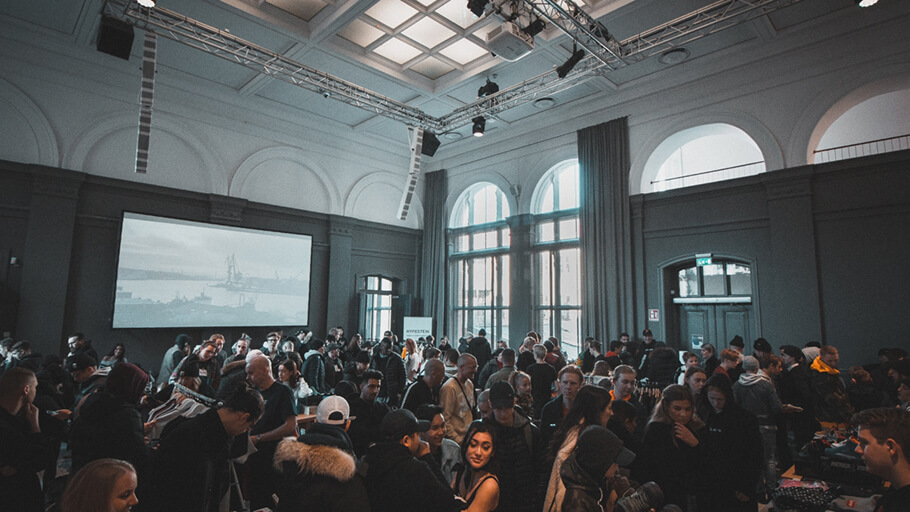It’s no secret that budgeting is one of the tasks event planners dread the most. Crunching the numbers may not be fun, but it’s a crucial step towards understanding how you spend trade show booth budget and where you might be spending too much or too little.

Think about it, if you blow your budget on entertainment but have no money left to promote the event, you’ll end up with fewer attendees than expected turning up for the entertainment you paid top dollar to book. Allocating your event budget shouldn’t be a guessing game based on feel and intuition. A good trade show booth budget is based on real spending habits and previous event performance.
Tracking each and every penny you spend is crucial to improving your event’s return on investment (ROI) and managing your overall event cost. Here are a few simple steps you can take to master your event budget for 2019.
Know What You’re Budgeting For
To create a beautiful budget, you need to know what you’re budgeting for. Focusing on specific event areas can help you categorize and prioritize your event spending. Try breaking out your major spending items into categories. Typical event categories include venue, décor, staffing, entertainment, marketing, technology, and travel costs, but your budget might include more categories depending on the type of events you run. Once you know how many categories you’re working with, it’s easier to figure out how far your budget will need to stretch.

Look to Past Event Budgets
The best way to improve your budget is to reference your spending habits for past events. Try to pinpoint line items that you overspent or underspent on and see if these items are a trend for your events. If you find yourself consistently overspending in the same categories or on the same items, it’ll be much easier to change the way you allocate your funds for your next event.
Reference Other Event Budgets
If you’re hosting your first event or facing budget constraints, a good place to start is to compare how other event planners spend their money. Knowing how other successful events spend the biggest chunk of their budget might give you the inspiration you need to make a change. The top costs for event planners tend to be marketing and promotion, entertainment, printed materials, and venue costs. If you find yourself spending very little in any of these categories, ask yourself if that works for your event or if you might be underspending.
Have Specific Goals
Budgeting just for the sake of budgeting is great, but planning with a specific goal in mind can really set you up for success. What do you want to accomplish for your next event? Are you looking to increase sponsor revenue, lower your total spending on your event, rework your budget so you have a more to spend on a specific category, or just increase your overall ROI? Knowing what you’re trying to accomplish can affect the ways you allocate your expenditures.
Include Technology Costs

Many event planners forget to add room for event technology expenditures into their budget. We’re not just talking A/V equipment or customized charging booths, but your ticketing platform, event apps, and anything you may use to enhance your event’s online presence. For example, you were always planning on live-streaming your event, but you didn’t budget for the camera rental or interface needed to actually get the stream up and running.
Ticketing platforms and online credit card processors have varying fee rates. If you don’t pass these fees along to your customers or adjust your ticket prices to cover these fees, you may find yourself spending more on your software solutions that you originally anticipated.
Leave an Emergency Fund
For some event planners, putting aside extra money for emergency expenditures can feel impossible, especially on a tight budget. Having a bit of wiggle room in your budget allows you to absorb unexpected or hidden costs that might creep up right before your event. You could show up to your venue only to find you need to invest in more A/V gear, or the price for your entertainment has gone up. Whatever it may be, you always want to leave a bit of financial room so you can handle the unexpected.
Avoid Simple Mistakes
There are two big budgeting mistakes many event planners make:
1. Misplacing receipts/quotes
2. Waiting until the last minute to draft their budget
3. Not proofreading
If you get into the habit of keeping every single receipt and quote in an organized way, it’ll save you heaps of time later on. Similarly, try to work on your event budget gradually rather than doing it all in a time crunch. If you take 10-15 minutes a day and work on specific items, or try to tackle your budget one category at a time, you’ll be much less stressed when it comes time to implement your event strategy.
Also, this goes without saying, but make sure you proofread your budget. Online budgeting tools and Excel spreadsheets work wonders, but they won’t check your work if you plug the wrong information into the wrong places. Having a second set of eyes check your work is a great way to rule out any careless mistakes, and it also promotes financial transparency among your event planning team!


